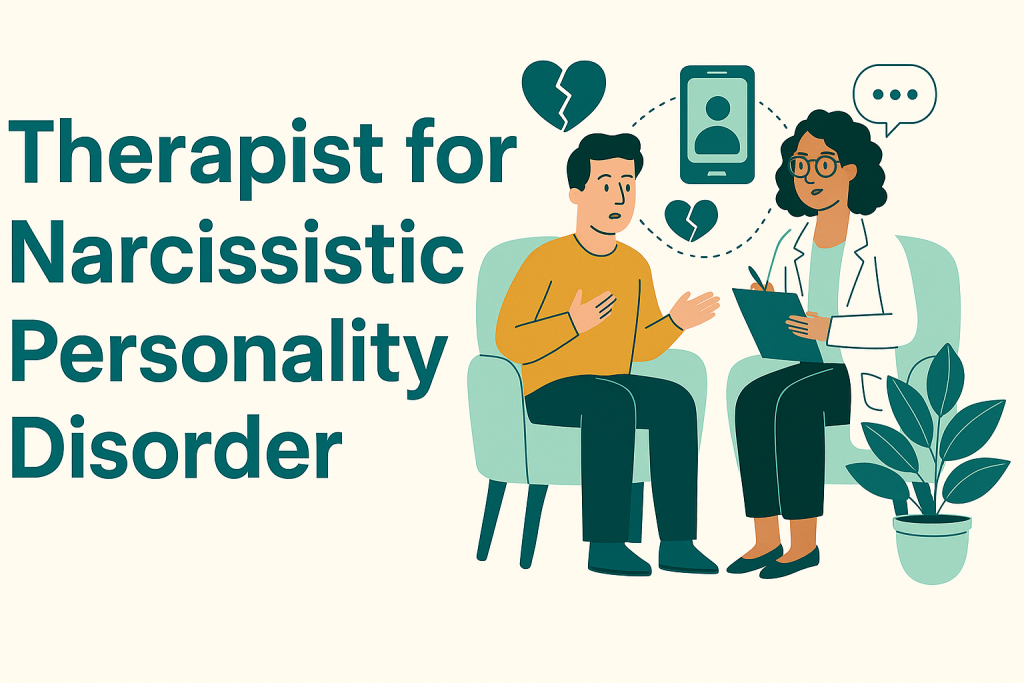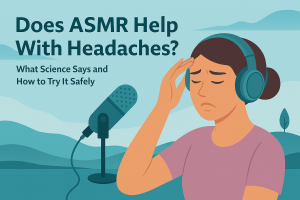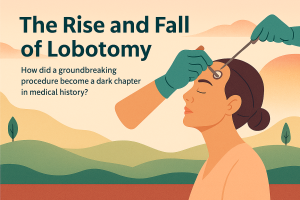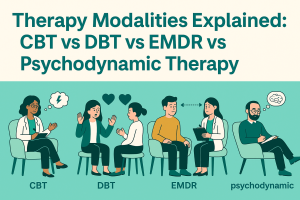Have you ever tried to have a conversation with someone who constantly redirects every topic back to themselves, becomes enraged at the slightest criticism, or seems to lack genuine empathy for others' experiences? If you're seeking help for narcissistic personality disorder—either for yourself or a loved one—you've likely discovered that finding the right therapist requires specialized knowledge and approach.
As a mental health professional with extensive experience in personality disorders, I've witnessed how transformative proper NPD treatment can be when delivered by appropriately trained clinicians. Unlike more common mental health concerns, narcissistic personality disorder presents unique therapeutic challenges that require specific expertise, boundaries, and treatment modalities. The good news? With the right therapeutic match and evidence-based approach, meaningful change is possible.
Understanding Narcissistic Personality Disorder
Narcissistic Personality Disorder (NPD) is characterized by a pervasive pattern of grandiosity, need for admiration, and lack of empathy that begins by early adulthood and is present in various contexts. According to the DSM-5, individuals with NPD typically display five or more of the following symptoms:
Grandiose Sense of Self-Importance
Exaggerating achievements and talents, expecting to be recognized as superior without commensurate achievements.
Preoccupation with Fantasies
Fantasies of unlimited success, power, brilliance, beauty, or ideal love that replace realistic goals and efforts.
Belief in Being "Special"
Believing they are "special" and unique and can only be understood by, or should associate with, other special or high-status people.
Requires Excessive Admiration
Having a constant, insatiable need for admiration, attention, and validation from others.
Sense of Entitlement
Unreasonable expectations of especially favorable treatment or automatic compliance with their expectations.
Interpersonally Exploitative
Taking advantage of others to achieve their own ends without regard for others' feelings or needs.
Lacks Empathy
Unwilling or unable to recognize or identify with the feelings and needs of others.
Envious of Others
Often envious of others or believes that others are envious of them.
Arrogant, Haughty Behaviors
Displaying arrogant, cocky, or patronizing attitudes and behaviors toward others.
Clinical Insight: Many individuals with NPD experience what's known as "vulnerable narcissism" beneath the grandiose exterior—a fragile self-esteem that's highly sensitive to criticism or perceived slights. This understanding is crucial for effective therapeutic engagement.
Why Specialized Therapy is Essential for NPD
Narcissistic Personality Disorder presents unique challenges in therapy that require specialized training and approach:
Therapeutic Alliance Challenges
Individuals with NPD may struggle to form genuine therapeutic alliances, viewing therapists as service providers rather than collaborative partners.
Resistance to Feedback
Even constructive feedback can be perceived as narcissistic injury, triggering defensive reactions or therapy termination.
Manipulation Risks
Therapists must maintain clear boundaries to prevent being manipulated or becoming enmeshed in the client's interpersonal patterns.
According to research published in the Journal of Clinical Psychology, therapists without specific NPD training may inadvertently reinforce narcissistic patterns or become frustrated with the slow progress characteristic of personality disorder treatment.
What to Look for in an NPD Therapist
When seeking a therapist for narcissistic personality disorder, these qualifications and characteristics are particularly important:
Evidence-Based Therapeutic Approaches for NPD
Several therapeutic modalities have shown effectiveness in treating narcissistic personality disorder:
Transference-Focused Psychotherapy (TFP)
This specialized psychodynamic treatment focuses on interpreting the patient's distorted perceptions of the therapist (transference) to help them develop more integrated views of themselves and others. TFP has demonstrated effectiveness in randomized controlled trials for reducing narcissistic pathology and improving interpersonal functioning.
Mentalization-Based Treatment (MBT)
MBT helps individuals with NPD develop the capacity to understand their own and others' mental states—thoughts, feelings, desires, and beliefs. This approach addresses the core empathy deficits characteristic of NPD and has shown promise in clinical studies.
Schema Therapy
This integrative approach identifies and modifies early maladaptive schemas—deeply held negative beliefs about oneself and relationships—that underlie narcissistic patterns. Schema therapy combines cognitive, behavioral, and experiential techniques to create meaningful change.
Cognitive Behavioral Therapy (CBT)
While standard CBT may be less effective for NPD, adaptations focusing on cognitive distortions related to entitlement, superiority, and empathy show promise. CBT can be particularly helpful for addressing comorbid conditions like anxiety or depression.
Dialectical Behavior Therapy (DBT)
Originally developed for Borderline Personality Disorder, DBT skills—particularly emotion regulation and interpersonal effectiveness—can benefit individuals with NPD by addressing emotional dysregulation and improving relationship skills.
The NPD Treatment Journey: What to Expect
Assessment and Diagnosis
Comprehensive evaluation using structured clinical interviews and assessment tools to establish accurate diagnosis and treatment planning. This phase typically involves 2-4 sessions and may include collateral information from family members when appropriate.
Treatment Contracting
Establishing clear treatment goals, boundaries, and expectations. This crucial phase sets the foundation for the therapeutic work and addresses potential treatment-interfering behaviors common in NPD.
Building Therapeutic Alliance
Developing a working relationship despite the interpersonal challenges NPD presents. This phase may take several months and requires skillful navigation of idealization and devaluation patterns.
Addressing Core Pathology
Working through grandiosity, entitlement, and empathy deficits using the chosen therapeutic modality. This is typically the longest phase of treatment, often lasting 1-3 years.
Relapse Prevention
Consolidating gains and developing strategies to maintain progress after formal therapy concludes. This includes anticipating potential triggers and creating support systems.
Treatment Reality: NPD treatment is typically long-term, with studies suggesting meaningful change often requires 2+ years of consistent therapy. Dropout rates are high, particularly in the first six months, highlighting the importance of finding the right therapeutic match early.
Challenges in NPD Treatment and How Specialists Address Them
| Common Challenge | Why It Occurs | Specialist Approach |
|---|---|---|
| Early Termination | Therapy threatens narcissistic defenses; feedback triggers narcissistic injury | Careful pacing, framing interventions non-confrontationally, anticipating defensive reactions |
| Therapist Idealization/Devaluation | Splitting defense mechanism; inability to maintain integrated view of others | Interpreting these patterns as they occur in session; maintaining consistent boundaries |
| Lack of Motivation | Often enter therapy due to external pressure; may not recognize need for change | Linking treatment goals to client's stated values; highlighting costs of narcissistic patterns |
| Comorbid Conditions | High rates of depression, substance abuse, and other personality disorders | Integrated treatment addressing both NPD and comorbid conditions simultaneously |
Finding the Right NPD Therapist: A Practical Guide
Locating a qualified NPD specialist requires careful research and consideration:
Specialized Directories
Use professional directories that allow filtering by personality disorder expertise, such as the Psychology Today therapist directory or specialized personality disorder treatment centers.
Initial Consultations
Schedule consultations with 2-3 potential therapists to assess their NPD experience, treatment approach, and personal fit. Ask specific questions about their NPD treatment philosophy and success rates.
Verify Credentials
Confirm licenses, certifications, and specialized training in evidence-based NPD treatments. Look for therapists who participate in ongoing NPD-specific supervision or consultation groups.
Questions to Ask Potential NPD Therapists
- What percentage of your practice focuses on personality disorders, specifically NPD?
- What therapeutic approaches do you use for NPD, and what is the evidence supporting them?
- How do you handle situations where clients become defensive or angry in session?
- What is your policy regarding between-session contact and emergencies?
- How do you measure progress in NPD treatment?
- Do you participate in supervision or consultation specifically for personality disorder cases?
Success Stories: The Transformative Power of Specialized NPD Treatment
"After three failed therapy attempts where therapists either seemed intimidated by me or quickly became frustrated, I found a specialist who truly understood narcissistic personality disorder. She didn't flinch when I tried to manipulate her, and she gently but consistently pointed out my patterns without making me feel attacked. For the first time, I'm starting to understand how my behavior affects others and developing genuine connections."
- Mark, 42, after 18 months of Transference-Focused Psychotherapy
"As the partner of someone with NPD, I'd nearly given up hope after years of couples counseling that didn't address the core issues. Finding a therapist who specialized in NPD was revolutionary. She helped my partner develop empathy skills while teaching me how to set boundaries without guilt. Our relationship will never be 'normal,' but it's become genuinely loving and sustainable."
- Sarah, 38, partner of someone with NPD
Important Consideration: While therapy can produce meaningful improvement in NPD symptoms, complete "cure" is unlikely. Realistic goals include improved relationships, reduced narcissistic behaviors, better emotional regulation, and decreased comorbid symptoms like depression or anxiety.
When to Seek Immediate Help
If you or someone with NPD is experiencing any of the following, seek immediate assistance:
- Suicidal thoughts or behaviors
- Homicidal ideation or intent
- Severe depression or anxiety impairing daily functioning
- Substance abuse requiring detoxification
- Legal consequences related to narcissistic behaviors
In crisis situations, contact emergency services or the National Suicide Prevention Lifeline at 988.
Find Specialized NPD Treatment at TherapyDialFrequently Asked Questions About NPD Therapy
Yes, NPD can be treated, but it requires specialized approaches and typically long-term therapy. While complete personality transformation is rare, research shows that evidence-based treatments can significantly reduce narcissistic behaviors, improve relationships, decrease comorbid conditions, and enhance quality of life. The American Psychological Association recognizes several effective treatments for NPD.
NPD treatment is generally long-term, often requiring 2+ years of consistent therapy. The initial phase (first 6-12 months) focuses on building therapeutic alliance and addressing treatment-interfering behaviors. The middle phase (1-3 years) works on core pathology, while the termination phase consolidates gains. Progress is typically gradual rather than dramatic.
NPD specialists have specific training in personality disorders, particularly Cluster B disorders. They're skilled in managing therapeutic challenges unique to NPD, such as manipulation attempts, intense reactions to perceived criticism, and difficulties forming genuine therapeutic alliances. They also typically use evidence-based approaches like TFP, MBT, or Schema Therapy rather than standard talk therapy.
Couples therapy can be beneficial when one partner has NPD, but it requires a specialist who understands personality disorders. Standard couples therapy may inadvertently reinforce narcissistic patterns. Effective approaches focus on empathy development, boundary setting, and addressing power imbalances while avoiding blame. Individual therapy for both partners is often recommended alongside couples work.
Only a small percentage of individuals with NPD seek treatment voluntarily—estimates range from 10-25%. More often, they enter therapy due to external pressures like relationship problems, workplace issues, legal troubles, or comorbid conditions like depression. This presents additional challenges for engagement and motivation in treatment.
There are no FDA-approved medications specifically for NPD, but medications can help manage comorbid conditions like depression, anxiety, or mood instability that often accompany NPD. According to the National Institute of Mental Health, medication should be considered an adjunct to psychotherapy rather than a primary treatment for NPD itself.
Success rates vary widely depending on treatment approach, therapist skill, client motivation, and NPD severity. Studies of specialized treatments like Transference-Focused Psychotherapy show significant improvement in 50-70% of cases that complete treatment. However, dropout rates are high (40-60% in the first year), which substantially impacts overall success statistics.
Therapy can help individuals with NPD develop cognitive empathy (understanding others' perspectives) more readily than affective empathy (feeling what others feel). Mentalization-Based Treatment specifically targets empathy development. While profound changes in emotional experiencing are less common, significant improvement in interpersonal understanding and behavior is achievable.
Look for specific credentials: training in evidence-based NPD treatments (TFP, MBT, Schema Therapy), membership in personality disorder organizations, publications or presentations on NPD, and substantial experience treating personality disorders. Be wary of therapists who claim to "specialize" in NPD but lack specific training beyond general psychotherapy.
Focus on what you can control: set healthy boundaries, seek support for yourself (therapy or support groups), and avoid enabling behaviors. Sometimes framing treatment around specific problems the person acknowledges (like relationship difficulties or work problems) rather than the NPD diagnosis itself can increase openness. Ultimately, you cannot force someone to change who doesn't see a need for it.
About Our Editorial Team
Author: TherapyDial Clinical Team - Our mental health professionals include specialists in personality disorders with advanced training in evidence-based NPD treatments.
Reviewer: Dr. Elena Rodriguez, PhD - Clinical psychologist specializing in personality disorders with 15 years of experience treating Narcissistic Personality Disorder using Transference-Focused Psychotherapy.
Last updated: October 29, 2025




